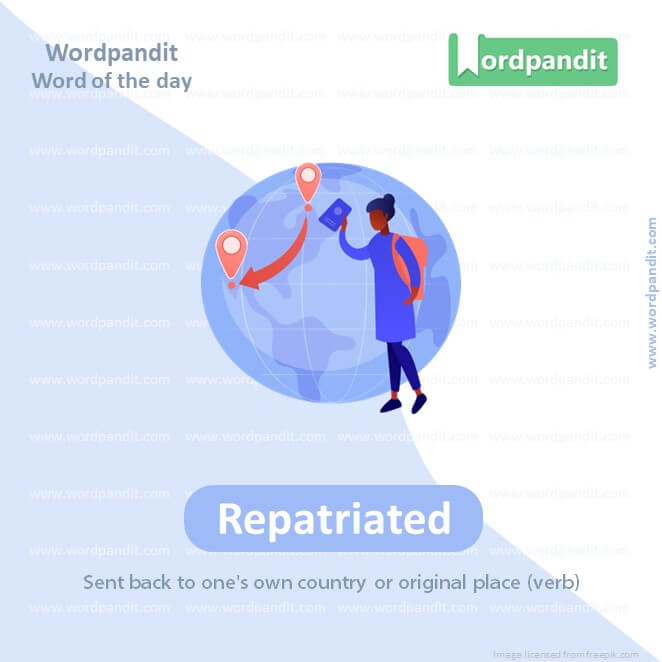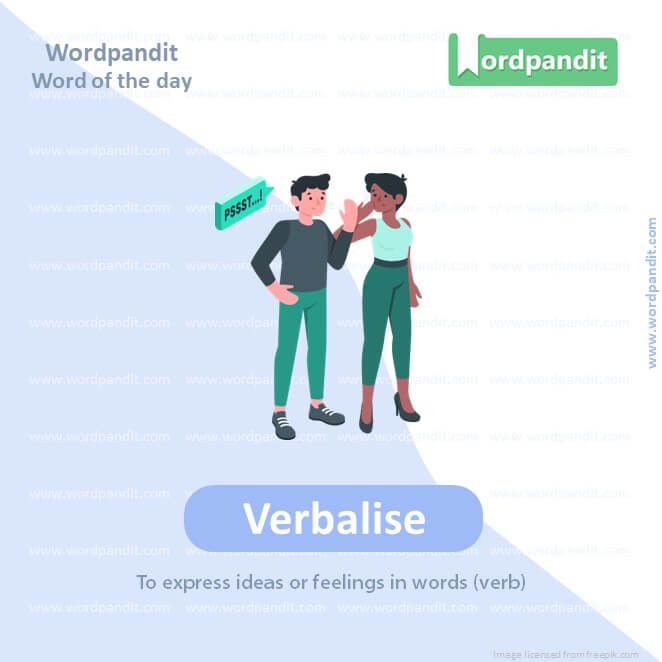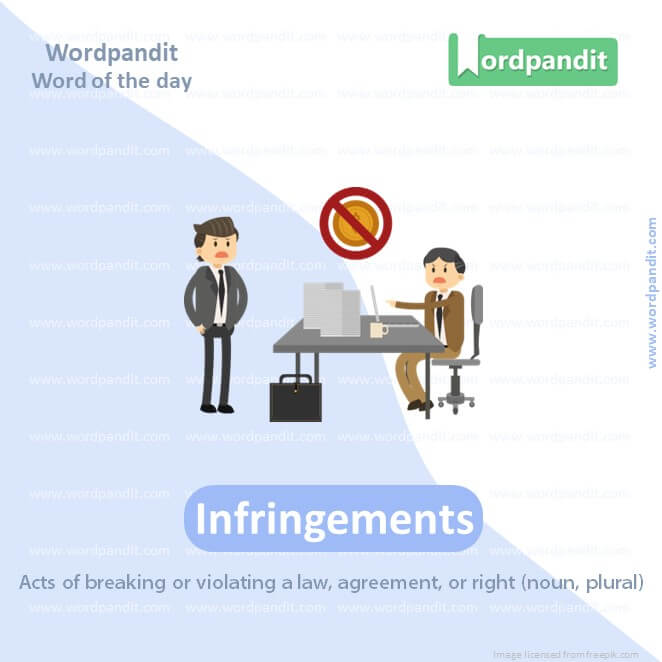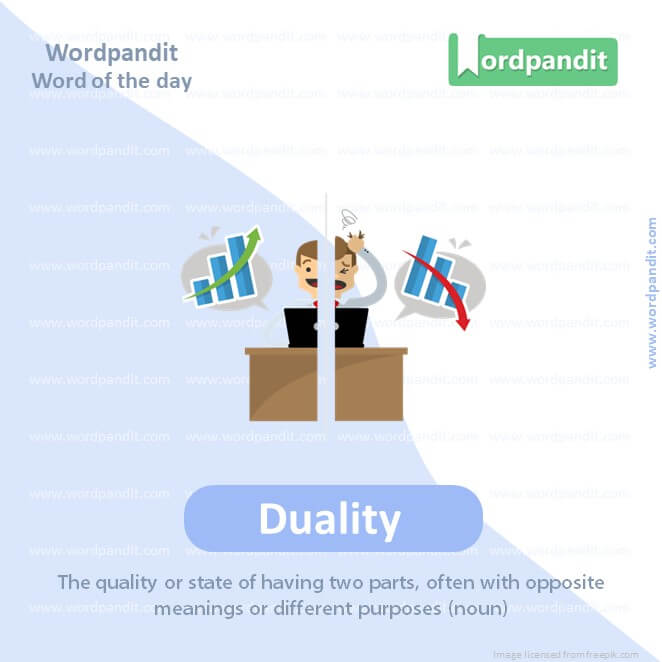Daily Vocabulary Words: List of Daily Used Words in Leading Indian Newspapers
Hi there. Welcome to this special section @ Wordpandit. Our endeavour here is straightforward: highlighting daily vocabulary words that you would come across in leading newspapers in the country. We have included the following newspapers in our selection:
• The Times of India
• The Economic Times
• Hindustan Times
• Mint
• Indian Express
We are putting in extensive work to develop your vocabulary. All you have to do is be regular with this section and check out this post daily. This is your repository of commonly used words; essentially, we are posting a list of daily used words. Hence, this has significant practical application as it teaches you words that are commonly used in leading publications mentioned above.
Visit the website daily to learn words from leading Indian newspapers.

WORD-1: Virality
CONTEXT: The year started with Microsoft deciding to invest $10 billion in the OpenAI project, at the heels of the virality of its ChatGPT, which, by February, had become the fastest-growing application.
SOURCE: Indian Express
EXPLANATORY PARAGRAPH: Virality is like when a video of a funny cat spreads really fast among your friends and everyone starts talking about it. It means something, especially a video or a piece of information, becomes very popular and spreads quickly over the internet.
MEANING: The quality or state of being viral, especially becoming very popular and quickly spreading to many people (noun)
PRONUNCIATION: vi-ral-i-tee
SYNONYMS: Popularity, Spreadability, Contagiousness, Trendiness, Buzzworthiness, Infectiousness
USAGE EXAMPLES:
1. The video gained virality overnight.
2. The challenge’s virality took everyone by surprise.
3. They hoped their campaign would achieve virality.
4. The meme’s virality was unexpected.

WORD-2: Repatriated
CONTEXT: there’s a possibility that the sentenced prisoners can be repatriated to India.
SOURCE: Times of India
EXPLANATORY PARAGRAPH: Repatriated is like when you go on a vacation to another country and then come back home. It means bringing someone or something back to their own country from a different country.
MEANING: Sent back to one’s own country or original place (verb)
PRONUNCIATION: ri-pay-tree-ay-tid
SYNONYMS: Returned, Restored, Sent Back, Reinstated, Reintegrated, Resettled
USAGE EXAMPLES:
1. The tourists were repatriated after the travel ban.
2. He was repatriated to his homeland.
3. The government repatriated the artifacts.
4. She was repatriated due to visa issues.
WORD-3: Analogue
CONTEXT: This is a peculiar need with no analogue in the universe of content applications.
SOURCE: Hindustan Times
EXPLANATORY PARAGRAPH: Analogue is like a clock with hands that move around a circle to tell time, instead of a digital clock with numbers that change. It means something that is not digital but works in a traditional or old-fashioned way.
MEANING: Relating to or using signals or information represented by a continuously variable physical quantity such as spatial position or voltage (adjective). It can also refer to a thing comparable to another thing in certain features (noun).
PRONUNCIATION: an-uh-log
SYNONYMS (Adjective): Non-digital, Conventional, Traditional, Mechanical, Physical, Standard
SYNONYMS (Noun): Counterpart, Equivalent, Parallel, Similarity, Match, Correspondent
USAGE EXAMPLES:
1. He preferred analogue clocks over digital ones.
2. The analogue recording has a warmer sound.
3. She found an analogue in nature for the scientific problem.
4. The analogue system was replaced by digital technology.

WORD-4: Verbalise
CONTEXT: Around this point, both industry and state actors started to verbalise what had been insisted on for a decade by AI academics, policy scholars, and social scientists, but was being soundly ignored by the industry.
SOURCE: Indian Express
EXPLANATORY PARAGRAPH: Verbalise is like when you have a thought in your head and then say it out loud. It means to express your thoughts or feelings using words.
MEANING: To express ideas or feelings in words (verb)
PRONUNCIATION: vur-buh-lyz
SYNONYMS: Articulate, Express, Vocalize, Utter, Voice, Communicate
USAGE EXAMPLES:
1. He struggled to verbalise his emotions.
2. She verbalised her disagreement during the meeting.
3. The child is learning to verbalise his needs.
4. It’s important to verbalise your thoughts clearly.

WORD-5: Infringements
CONTEXT: Copyright infringements are accusations of using content created by someone else without either acknowledgment or payments.
SOURCE: Times of India
EXPLANATORY PARAGRAPH: Infringements are like when someone breaks the rules of a game you’re playing. It means doing something that goes against a rule or law.
MEANING: Acts of breaking or violating a law, agreement, or right (noun, plural)
PRONUNCIATION: in-frinj-muhnts
SYNONYMS: Violations, Breaches, Transgressions, Contraventions, Invasions, Encroachments
USAGE EXAMPLES:
1. The company was sued for patent infringements.
2. They discussed the infringements of privacy.
3. The new law aimed to reduce copyright infringements.
4. There were several infringements of the school rules.

WORD-6: Duality
CONTEXT: The law responds to the duality of content and carriage chiefly by defining a “message” to include all types of content.
SOURCE: Hindustan Times
EXPLANATORY PARAGRAPH: Duality is like your toy that is a robot on one side and a car on the other side. It means something has two different parts or aspects.
MEANING: The quality or state of having two parts, often with opposite meanings or different purposes (noun)
PRONUNCIATION: doo-al-i-tee
SYNONYMS: Dichotomy, Bipolarity, Dualism, Two-sidedness, Contrast, Bifurcation
USAGE EXAMPLES:
1. The duality of good and evil is a common theme in stories.
2. Her personality had an interesting duality.
3. The duality of the situation was confusing.
4. The novel explores the duality of human nature.
WORD-7: Regulatory
CONTEXT: The holistic definition of a message and exclusion of references to OTT helps to distinguish between regulatory frameworks for content and carriage services.
SOURCE: Hindustan Times
EXPLANATORY PARAGRAPH: Regulatory is like the rules in school that help everyone know what they can and can’t do. It means related to making or enforcing rules or laws to control something.
MEANING: Related to or concerning the making and application of rules, laws, or guidelines (adjective)
PRONUNCIATION: reg-yuh-luh-tor-ee
SYNONYMS: Governing, Controlling, Supervisory, Directive, Administrative, Rule-making
USAGE EXAMPLES:
1. The company had to follow strict regulatory guidelines.
2. They discussed the regulatory changes in the industry.
3. The regulatory body oversaw the project.
4. There are many regulatory requirements for food safety.
WORD-8: Disseminate
CONTEXT: the constitutional right to disseminate content online has no analogue in the world of carriage infrastructure and requires specialized regulatory treatment.
SOURCE: Hindustan Times
EXPLANATORY PARAGRAPH: Disseminate is like when you share a big bag of candy with all your friends, spreading it around. It means to spread or share information, ideas, or things to a lot of people.
MEANING: To spread or distribute widely, especially information or ideas (verb)
PRONUNCIATION: di-sem-uh-nayt
SYNONYMS: Spread, Distribute, Circulate, Propagate, Broadcast, Diffuse
USAGE EXAMPLES:
1. The internet is used to disseminate information quickly.
2. They disseminated the survey results to the public.
3. The organization’s goal was to disseminate knowledge.
4. Flyers were disseminated to advertise the event.
WORD-9: Commuted
CONTEXT: That Qatar’s Court of Appeals has commuted the death sentence handed down to eight Indian ex-navy personnel is unqualified good news.
SOURCE: Times of India
EXPLANATORY PARAGRAPH: Commuted is like when your mom says you can have a smaller time-out instead of a longer one. It means to change a punishment to one that is less severe.
MEANING: To change a punishment into one that is less severe, especially a prison sentence (verb)
PRONUNCIATION: kuh-myoot-ed
SYNONYMS: Reduced, Lessened, Altered, Modified, Lightened, Changed
USAGE EXAMPLES:
1. His sentence was commuted from life to 20 years.
2. The governor commuted her sentence.
3. The penalty was commuted to a fine.
4. He requested his sentence be commuted.
WORD-10: Explicitly
CONTEXT. For example, Singapore and Malaysia explicitly recognize their differences and regulate the two separately.
SOURCE: Hindustan Times
EXPLANATORY PARAGRAPH: Explicitly is like when your teacher gives very clear instructions on how to do your homework. It means saying something very clearly and in detail, leaving no room for confusion or doubt.
MEANING: In a clear and detailed manner, leaving no room for confusion or doubt (adverb)
PRONUNCIATION: ik-splis-it-lee
SYNONYMS: Clearly, Plainly, Precisely, Directly, Unambiguously, Specifically
USAGE EXAMPLES:
1. The rules were explicitly stated.
2. She explicitly asked for no sugar in her coffee.
3. The contract explicitly outlines the terms.
4. The teacher explicitly explained the instructions.
Vocabulary Today
In the dynamically evolving spectrum of language, staying updated with ‘vocabulary today’ is an integral part of mastering a language. These topical, contemporary words breathe vitality into our communication, bridging the gap between language learning and language living. But, how can we effectively learn ‘vocabulary today’?
Grasping ‘vocabulary today’ begins with exposure to contemporary contents. Engaging with current publications, social media platforms, movies, music, podcasts, and digital content can dive you into the real-world usage of ‘vocabulary today’. These platforms imbibe the vocabulary of the day, reflecting the evolution in language.
To consolidate the learning of ‘vocabulary today’, utilize memory-enhancing tools. Flashcards, language learning apps, or memory-enhancement software can make your study session an engaging venture and enhance word retention.
However, the secret sauce to learning ‘vocabulary today’ is practice. Inculcating these words in your regular dialogues, written correspondences, or social media posts will reinforce your grasp over these words. It brings you closer to ‘vocabulary today’, enhancing your language adaptability and fluency.
Better understanding of ‘vocabulary today’ can be achieved by staying connected with diverse social platforms which bring words from across locations and cultures, expanding your linguistic understanding. Also, participating in language forums, discussion groups, or language exchange platforms provides great insights into ‘vocabulary today’.
In the final analysis, staying abreast with ‘vocabulary today’ is an exciting quest that requires consistent exposure, active practice, and social engagement. As you embrace this journey, you will find your language proficiency growing with every new word, enabling you to step into the dynamic world of contemporary language with confidence and mastery. Remember, ‘vocabulary today’ is not static, it flows like a river, always fresh, always changing, and always enriching!













